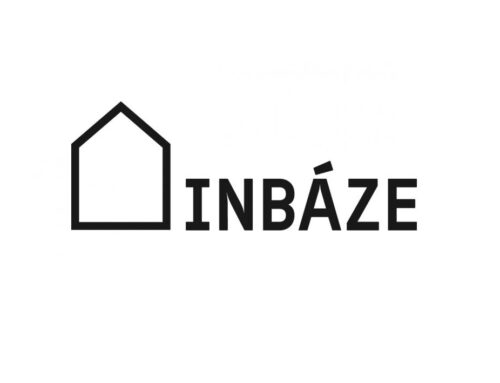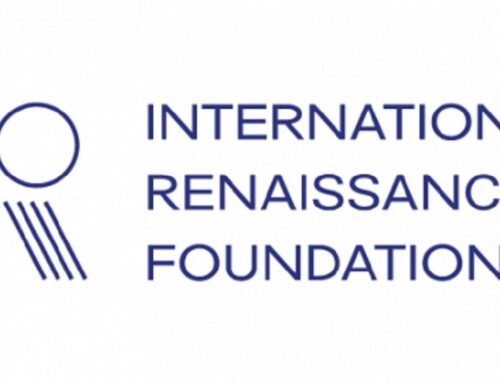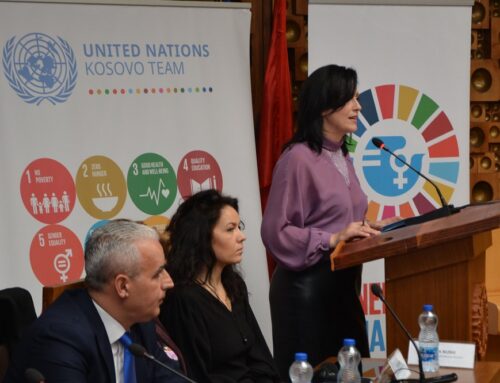Lutjona Lula, M.A.
Albania’s political sphere in the past months has been tense. The opposition MPs resigned their mandates, claiming the resignation of Edi Rama, from the Prime Minister’s Office, due to vote buying and corruption allegation processes. The country has seen around ten opposition protests so far. Initially, 30th of June was the appointed date for local municipal elections, but the situation is not clear of what will happen this Sunday. The opposition parties did not register for the elections by asking its followers not to recognize such election. Thus the only party that is conducting the campaign and mobilizing voters is the Socialist Party.
The situation became even more tense, when the German newspaper BILD published recorded tape evidence of conversation between criminally involved persons and politicians in Albania, indicating the vote-buying in the past elections in 2017. Based on the current situation, the President issued a decree which cancelled the 30th June as election date and appointed 13th of October as the new one. Due to this decision, the Prime Minister Rama has threatened to dismiss the President.
The government does not recognize the new date and the Central Election Committee is preparing the voting stations for this Sunday.
The international community seems confused with Council of Europe (CoE) cancelling its monitoring mission, while OSCE Office for Democratic Institutions and Human Rights (ODIHR) calls for respect of democratic principles. The ODHIR mission is prepared to monitor the elections.
Due to this complicated situation, FOMOSO.ORG undertook the initiative to interview few intellectuals and important personalities from academia and think tanks in the country.
According to Dr. Albert Rakipi, executive director of AIIS, the situation is a result of a zero-sum game played by the political actors. Often the governing style of Edi Rama is perceived as autocratic. According to Dr. Rakipi, the current governing style resembles that of Russia, while the Albanian Democracy remains a formal one and a façade, unfortunately still without any substance. “The decision of the President of Albania, according to me is a positive step, by thus avoiding any civil confrontation, which would have had severe consequences for the country.”-states Dr. Rakipi. Indeed, the interpretation and the focus of the PM Rama is being put on the legal grounds, while on the other hand, the President is calling for political solutions. Obviously, the approach of each stakeholder and institution differs and there is no will for finding common grounds.
Mr. Dervishi explains: The President cannot be dismissed unless the ruling party takes illegal steps. According to Constitution there is a defined process in the Parliament to dismiss the President. The ruling party needs ⅔ of votes and what makes the process invalid is validation of the vote of the Parliament by Constitutional Court – which is not functioning since a year due to- vetting process. The irony is that the President is elected 2 years ago precisely from the MPs that today want to dismiss him. From the institutional point of view this is the most chaotic situation(except 1997) but the country is not on the verge of anarchy. There is room for solution.
For many years now, the international community has played an important role in the political public debates in the country and for the current situation, many Albanians look towards them for solutions. In the eve of the decision of the European Council for the opening of accession negotiations, such situation surely does not help Albania. However, currently speaking the situation could have been solved by the Constitutional Court of Albania, which unfortunately is inexistent for the moment. This is often perceived as a result of the judiciary reform in Albania, widely praised by international community. As Dr. Rakipi points out, each of the parties now invites the international community to be against the other party and the statements of the representatives are often being instrumentalized according to the parties’ needs. The country’s paradox is periphrases by Mr. Lutfi Dervishi as the only thing you can predict currently in Albania is “unpredictability. What the international community can do at least, is to speak with one voice”.
The current situation has echoed internationally as well, especially after the publication of the tape recordings. Albanians seem confused about Sunday and the turnout figures itself will be an important indicator. Many are fearing potential incidents on Sunday, however the country seems puzzled about what the next steps will be. What this all situation pointed out is the need for a functional judiciary system and while the international public will curiously see the developments, the international actors should have a common voice and stand.
Author:
Lutjona Lula holds a bachelor degree in Political Science from University of Tirana. She pursued her graduate studies at the Joint Interdisciplinary Master in South East European Studies, University of Belgrade and Karl Franzens University of Graz. Lutjona has successfully completed a six-month research internship at the Albanian Embassy in Zagreb. Apart from her academic commitment, she has been active in various local NGOs and international seminars, mainly focused on human rights, regional cooperation, reconciliation and peace-building processes. Her fields of interest vary from political parties, democratization, societies in transition, South Eastern Europe and the EU enlargement. Ms. Lula is currently a contributor at FOMOSO.ORG for Albania and the region.
Contributors to the article:
Albert Rakipi, PhD, Chairman of the Albanian Institute for International Studies
Rakipi has a PhD in International Relations from Bilkent University. Before assuming this position, he has previously served as deputy Minister of Foreign Affairs of the Republic of Albania and a career diplomat. Dr. Rakipi also taught as part time professor at the Tirana University, Faculty of History and Philology and as guest lecturer in other universities in Albania and abroad. He is Co- Founder and Co-President of Albanian Council on Foreign Relations, founder of a monthly magazine Europa (www.europa.com.al) and co-founder and Editorial Page Editor of English language weekly newspaper Tirana Times (www.tiranatimes.com). He is a Board Member of the Diplomatic Academy of Albanian Ministry of Foreign Affairs. Also member of Director’s Network of International Relations Institutes of EU countries, Member of Editorial Board of the European Perspectives , – Journal on European Perspectives of the Western Balkans, Slovenia. He has received a number of scholarships and awards including Chevening Faculty Fellowship Program LSE, London, NATO Fellowship Program at NATO Defense College, Rome, US State Department International Visitors Program.etc
Lutfi Dervishi is a host in the talk show “Përballë”, in Albanian Public Television. He is a lecturer at the University of Tirana, teaching journalism to master students at the Journalism Department and also a trainer to Albanian Media Institute. He has been working previously as a news director to Public Television and “Vision +”. Mr Dervishi has been working as Executive Director of Transparency International Albania during the period 2008-2013. His field of expertise include: journalism, communication, public speaking, transparency, media ethics. Mr Dervishi is known as a public speaker and has delivered keynote speeches to many conferences and universities in Tirana and abroad. Dervishi is also very experienced in journalism as a political commentator of the main TV stations in Albania. With 25 years of experience in the media, he also has extensive practice in print, broadcast and social media. Mr Dervishi is also the contributing editor to the Tirana Times Newspaper.




